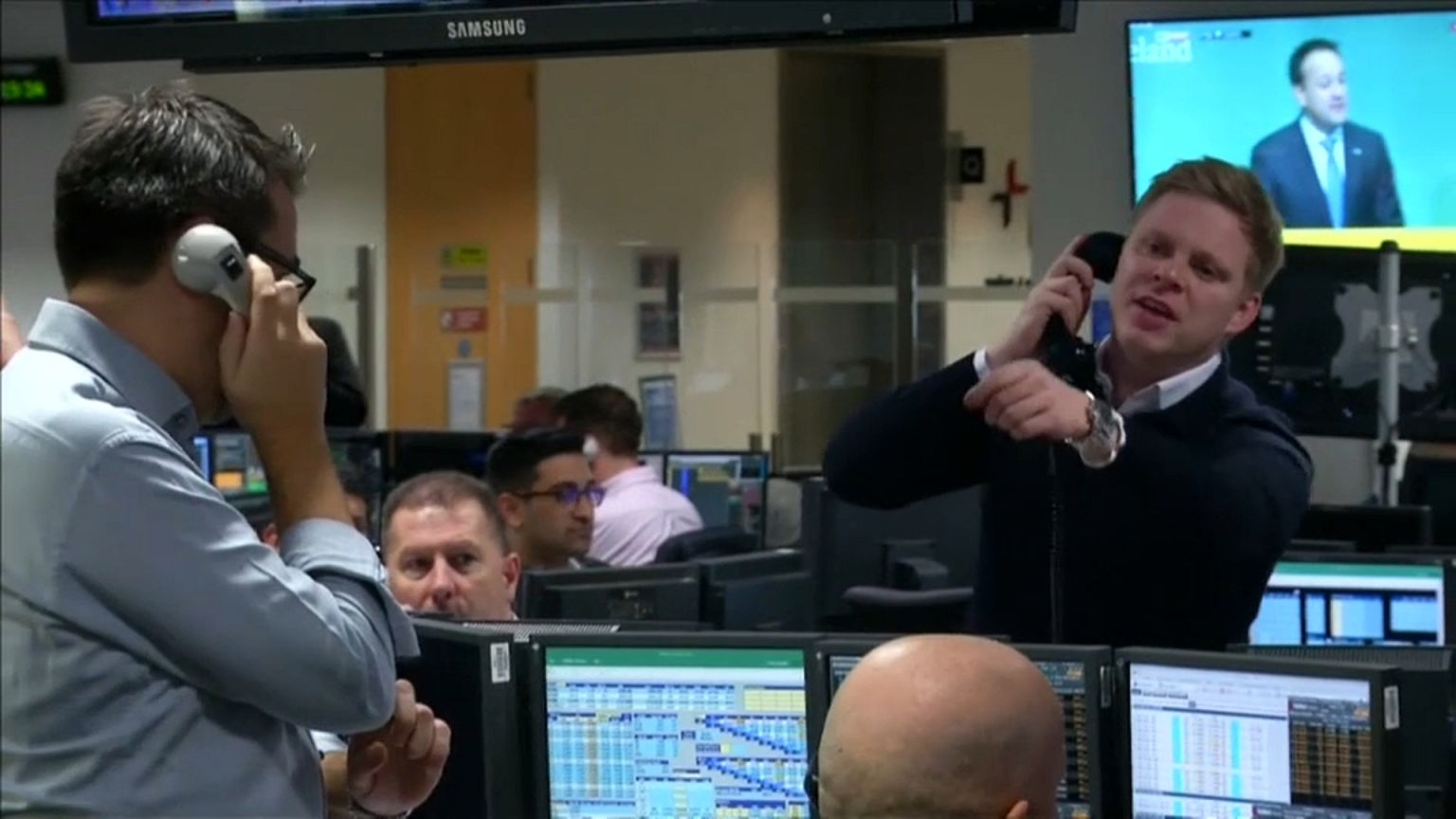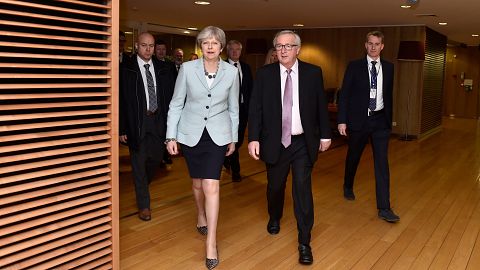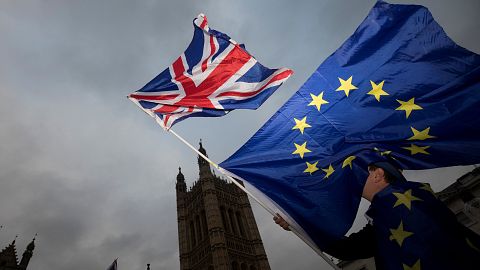There was a sigh of relief across financial markets after the UK and the EU agreed to start talks on post-Brexit trade and a transition period.
The British pound jumped to a six-month high against the euro on Friday after the EU and the UK finally agreed to move Brexit talks on to trade.
Sterling strengthened to around 87 pence per euro and $1.35. Against the Swiss franc, it has now erased almost all of the losses it suffered since the Brexit vote 18 months ago.
Stock indices across the continent also opened sharply up on the news. Even Britain's FTSE 100 Index, which normally falls when sterling rises because of a high number of dollar earners on the list, edged higher.
Draft guidelines showed the transition period would last around two years. During that time, Britain will remain part of the customs union and single market but will no longer take part in EU institutions or have a vote. It will however still be subject to EU law.
"If the UK and EU can quickly agree a transition deal of at least two years in the first quarter of 2018, then we will have three years until any major changes happen because of Brexit," said Nomura currency strategist Jordan Rochester.
'Markets move on politics'
However, some market strategists were more cautious as to what the future has in store.
"The markets do move on politics. That's why we've seen sterling so much up and down the last couple of months," said Bill Blain, fixed income strategist and head of capital markets at Mint Partners.
"I think in the next few months we're going to see far more analysis of what the effects of the UK being outside of Europe are going to be.For instance, one example will be just-in-time manufacturing: how is that going to have to change with custom posts set up across the EU, with the number of border posts that require documentation? That's going to change the way that manufacturing in the UK operates."
Prime Minister Theresa May's tough political balancing act is also of concern.
May's key parliamentary ally in Northern Ireland gave a cautious endorsement of the new Brexit terms, four days after 11th-hour objections from Belfast scuppered her attempt to sign off on an accord over the Irish border.
In the text, Britain agreed that should London and Brussels fail to agree on a final Brexit deal, the UK will maintain "full alignment" with those rules of the internal market and customs union that help protect north-south cooperation in Ireland.
It said in the absence of a trade deal, no new barriers would develop between Northern Ireland and the rest of the UK unless the devolved government in Northern Ireland agree that distinct arrangements are appropriate.
"The big joke running around the city this morning is how many new hospitals Northern Ireland is going to get for agreeing the terms last night," said Blain, of Mint partners.
But certainly there are moves in other parts of the UK, particularly Scotland, who have been seizing on this possibility of aligning, more alignment with Europe, as a way of bringing moderate Brexiteers together. And I certainly think there is a risk that we may see far more political pressure coming out of Scotland that could destabilise markets," he added.


















